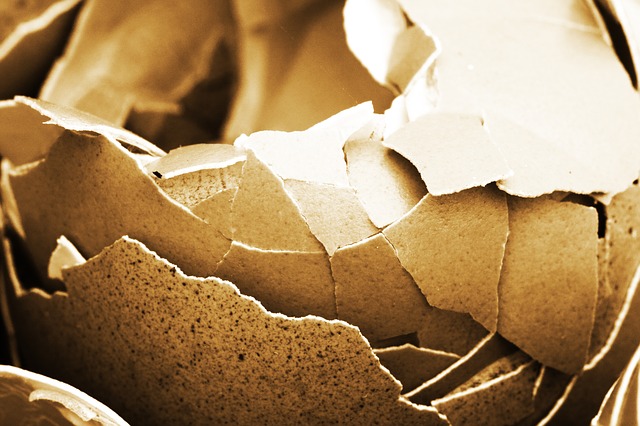
Natural do-it-yourself fertilizers: from fireplace ash to eggshells, coffee grinds, and vegetable-infused water. Here is how to prepare do-it-yourself fertilizers that are 100% natural… and free!
There are many natural fertilizers that you can use for gardening. Talking about do-it-yourself fertilizers could seem excessive, because most natural fertilizers are ready-to-use ingredients and only require a short preparation before using. Not only organic material, the vegetable infusions require a little bit more effort, but can lead to great satisfaction due to the high levels of micronutrients.
Fertilizing a garden means to increase the plants’ capacity to grow and flourish, which, in the case of ornamentals, translates to more blossomings, and in the case of fruiting plants, translates to more abundant harvests.
The best natural fertilizer is aged and composted manure, but still, there are some commonly used ingredients that can be useful for fertilizing orchard soil, the garden, or houseplants. Here is how to use natural do-it-yourself fertilizers and how to prepare them.
Natural do-it-yourself fertilizers
Natural do-it-yourself fertilizers, a list of natural, easy-to-find or easy-to-prepare fertilizers. Homemade fertilizers for plants.
Coffee Grinds
Coffee grinds are able to release nitrogen and antioxidant substances into the soil. They can be added to compost or administered simply by sprinkling them on the dirt. Coffee grinds have the ability to acidify the soil, so it’s better to use them in moderation for plants that require a basic pH. They can be added to ornamental plants such as geraniums, azaleas, rhododendrons, and camellias.
Banana Peels
Whoever is looking for a natural, do-it-yourself fertilizer will find what he is looking for in banana peels. To use this as fertilizer, simply chop the peel into small pieces and bury them just under the surface of the dirt. Alternatively, you can create a liquid fertilizer: let the banana peels soak in water for 15-20 days, filter, and use the obtained liquid to water your plants.
Beer Yeast
Beer yeast functions as a natural repellent for some insects. Furthermore, thanks to an array of micronutrients, beer yeast is a natural fertilizer that improves the flowering of roses. To prepare this natural, do-it-yourself fertilizer, simply mix 3 tablespoons of beer yeast into 10 liters of lukewarm water. Then use the water to water your garden.
Vegetable Cooking Water
Did you ever realize? The water that you use to cook vegetables is rich in micronutrients released by the vegetables! You can use this vegetable cooking water for watering your garden. Avoid using vegetable cooking water if the vegetables come from non-organic farming, because they may be filled with pesticides and potentially harmful chemicals. In reality, you too should avoid nourishing yourself with such non-organic vegetables. Generally, pesticides can be washed away from the vegetables very easily, so keep the vegetables under water for 5 minutes before cutting and immersing them in the cooking water.
Nettle Water
This is an excellent natural, homemade fertilizer. To prepare it, the whole plant is used (except the roots) in the amount of 0.5 kg of dry nettle, or 1 kg of fresh nettle, placed in 10 liters of water to soak.
The nettle-infused water, when prepared in 12 hours, is used concentrated, administered directly to the plants with a spray bottle. If you allow the nettle to soak for 4-5 days, you should dilute the fertilizer obtained. The nettle water contains nitrate, potassium, magnesium, and other micronutrients.
Nettle is found growing spontaneously, and often it is considered a weed. In reality, this “weed” is very useful in the kitchen, and if you find them in your garden, you can harvest them as long as they are young and tender. You can boil them and use them to prepare a tasty omelette. The cooking water could then be used as a perfect natural fertilizer for your garden!
The best nettle can be harvested in the first hot days of summer. If you don’t have nettle in your garden, you can buy nettle water at garden centers. Nettle water is such a “strong” garden remedy that it is of course sold on Amazon in concentrated 1 liter containers. Generally, you can dilute 100 mL of the concentrate in 5 liters of water, but always read the instructions because every producer has its own concentrations and dosages.
How much does it cost? Nettle water costs about the same as other natural and organic remedies (so it’s better if you prepare it yourself!). On Amazon, a 1-liter container costs about 19-25 Euro including shipping.
Seaweed
During a day at the sea, you can harvest handfuls of seaweed for the preparation of homemade fertilizer. The procedure for preparing this do-it-yourself fertilizer is similar to that described for nettle water.
Red Wine
Add red wine to the water you use for watering your plants in order to stimulate an abundant flowering.
Eggshells
Finely powdered eggshells can increase the fertility of any soil and, if placed at the base of a plant, can keep snails away.
Ash
Ash is useful for the preparation of seedbeds and transplanting. For the dosages and instruction, we invite you to read the guide Cenere per concimare.
Calendula and Chamomile
Infusions of calendula and chamomile can be used to fertilize a garden or ornamental plants. They are particularly useful for fertilizing and stimulating the growth of plants grown in containers.
Published by Anna De Simone and translated by Raymond Bellon